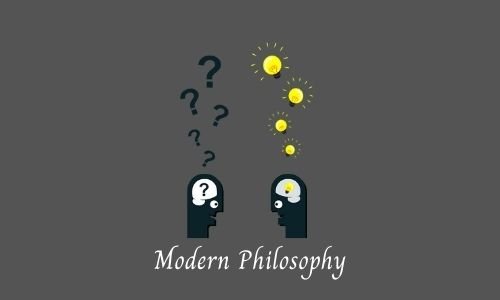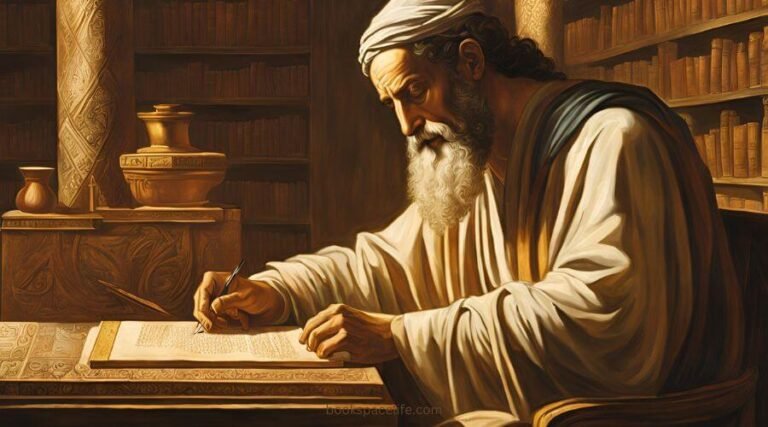Philo of Alexandria
Yeshayahu Leibowitz: The Philosopher Who Challenged the Foundations of Israeli Identity
Yeshayahu Leibowitz (1903 – 1994 CE) was one of the most prominent and controversial Jewish philosophers, theologians, and public intellectuals of the 20th century.
Known for his unwavering commitment to religious rigor and his sharp critiques of Israeli society and Zionism, Leibowitz’s work transcended the boundaries of traditional Jewish thought, bringing forth complex ethical and theological questions that continue to influence modern Jewish philosophy, politics, and spirituality.
Leibowitz’s intellectual journey, while deeply rooted in the Jewish tradition, was often critical of the very forces that shaped the modern Jewish state.
His views on the nature of religion, the relationship between Judaism and the state of Israel, and his emphasis on the importance of personal piety have made him a seminal figure in contemporary Jewish thought.
His legacy is as much about his intellectual contributions as it is about his moral courage to speak out against the status quo, making him a key figure in understanding the interplay between faith, politics, and ethics.
Table of Contents
(1) Early Life and Education
Yeshayahu Leibowitz was born on January 9, 1903, in the city of Riga, Latvia, then part of the Russian Empire.
His family was deeply rooted in Jewish tradition, and Leibowitz grew up in an environment steeped in both religious and intellectual influences.
His early education was marked by an immersion in traditional Jewish texts, including the Torah, Talmud, and various Jewish commentaries.
However, unlike many other scholars of his generation, Leibowitz was not satisfied with the limitations of traditional Jewish learning.
He sought a broader intellectual understanding that combined Jewish thought with Western philosophy, science, and history.
In his youth, Leibowitz moved to Berlin, where he studied at the prestigious Hochschule für die Wissenschaft des Judentums (Academy for the Science of Judaism) and later at the University of Berlin.
It was in Berlin, at the center of European intellectual life, that Leibowitz encountered the works of major philosophers, including Immanuel Kant, Friedrich Nietzsche, and Franz Rosenzweig.
This exposure to both Jewish and secular philosophy shaped his intellectual worldview, which would later inform his unique contributions to Jewish philosophy.
In the 1930s, as the rise of Nazi Germany became an ever-looming threat, Leibowitz left Europe for Palestine, joining the Jewish Yishuv (the Jewish community in pre-state Israel) in 1935.
His relocation to Palestine coincided with the increasing political turmoil in Europe and the mounting pressure for a Jewish homeland.
Leibowitz would spend the rest of his life in Israel, and his relationship with the land and the state would evolve in deeply complex and critical ways.
(2) Philosophical Foundations and Core Ideas
Yeshayahu Leibowitz’s philosophical thought was rooted in the belief that Judaism is fundamentally a religion of obedience and divine command, not merely a system of ethics or nationalism.
His most famous intellectual positions revolved around the nature of faith, the role of the state in religious life, and the relationship between Jewish law (Halakha) and personal responsibility.
(i) The Nature of Religion: Obedience to the Divine Command
A central tenet of Leibowitz’s philosophy is his emphasis on religion as a system of obedience to God’s will.
Unlike many modern thinkers who saw religion as a system of personal values or ethical principles, Leibowitz argued that Judaism’s central role was to fulfill the commandments of God, regardless of the consequences.
He believed that religion should not be concerned with human happiness or the welfare of the community but should solely focus on maintaining fidelity to God’s laws.
This is most clearly reflected in his view of Halakha, or Jewish law, which he saw as an expression of God’s will that must be followed without questioning.
In his essay Judaism, Human Values, and the Jewish State, Leibowitz argued that religious observance was not dependent on personal or social benefits.
He believed that performing mitzvot (commandments) was an act of pure devotion, independent of any external reward or outcome.
This stance often put him at odds with other Jewish thinkers who saw the ethical and national aspects of Judaism as integral to its religious identity.
(ii) The Jewish State and Nationalism
One of Leibowitz’s most provocative and controversial positions was his critique of Zionism and the modern Jewish state.
While many religious Zionists viewed the establishment of the State of Israel as a fulfillment of the biblical promise of a Jewish homeland, Leibowitz took a more critical view.
He argued that Zionism, as a form of nationalism, was a distraction from the true religious purpose of Judaism.
For Leibowitz, the focus of Jewish life should not be on the success of the Jewish state, but on the cultivation of religious observance and spiritual purity.
Leibowitz was particularly critical of the way in which religious observance was intertwined with nationalistic fervor in the State of Israel.
He warned that a focus on the political and military success of the state could undermine the spiritual integrity of the Jewish people.
He believed that the religious and ethical values of Judaism should not be subordinated to the needs of the state.
This led him to critique religious Zionist leaders and their use of Jewish law to justify political decisions.
Leibowitz’s stance on Zionism made him a deeply polarizing figure in Israeli society.
He famously referred to the creation of the State of Israel as a “tragedy” in the sense that it would lead to an overemphasis on political concerns, while diverting attention from religious duty.
According to Leibowitz, the success of the state should never take precedence over the individual’s responsibility to God and to the observance of Jewish law.
(iii) Human Dignity, Ethics, and the Role of the Individual
While Leibowitz’s focus on obedience to divine command often placed him at odds with more progressive Jewish thinkers, his commitment to human dignity and personal ethics was an essential part of his philosophy.
Leibowitz argued that the moral obligations of the individual are paramount, and that these obligations should be fulfilled independently of external circumstances.
One of the key ethical themes in Leibowitz’s thought was his critique of “utilitarian” approaches to ethics, which prioritize outcomes over principles.
He rejected the idea that religious practice should be motivated by a desire for personal fulfillment or national success, instead insisting that religious observance must be an act of pure devotion.
In this way, Leibowitz sought to preserve the sanctity of individual moral choices, arguing that the person who acts according to God’s will, regardless of external considerations, is the one who leads a truly ethical life.
(3) Influence and Impact
Yeshayahu Leibowitz’s influence on Jewish thought and Israeli society is profound but often contentious.
His commitment to religious purity, even in the face of national challenges, challenged the prevailing views of religious Zionism and left-wing secular ideologies alike.
His critique of Zionism and the political instrumentalization of Judaism stirred significant debate within Israeli society, especially during the height of the Israeli-Palestinian conflict.
Leibowitz’s writings on religion and politics also found a lasting impact in the fields of Jewish ethics and philosophy.
His emphasis on the autonomy of the individual and his focus on moral responsibility resonated with later Jewish thinkers, both religious and secular, who sought to integrate ethical theory with religious observance.
His philosophy inspired numerous scholars who grappled with the relationship between Jewish law, modernity, and national identity.
Though controversial, Leibowitz’s views also paved the way for a more nuanced understanding of the relationship between religion and politics in the modern world.
His critique of the Israeli state was not an attack on the Jewish people but rather a warning against the dangers of turning religion into a tool for political purposes.
His work on the role of the individual in religious life remains an important touchstone for anyone studying Jewish ethics, and his emphasis on the centrality of divine commandments continues to influence Orthodox thought.
(4) Legacy
Today, Yeshayahu Leibowitz remains a towering figure in Jewish philosophy, though his legacy is viewed with a mix of reverence and resistance.
His commitment to absolute religious observance, his critique of Zionism, and his emphasis on the individual’s moral responsibility continue to spark debates within Israeli society and among Jewish thinkers worldwide.
Leibowitz’s impact is most evident in the ongoing discussions about the role of religion in public life, the interplay between nationalism and religion, and the nature of Jewish identity in a rapidly changing world.
For those who seek a more spiritual and ethically rigorous form of Judaism, Leibowitz’s thought remains a beacon of intellectual clarity and moral depth.
His unwavering stance on the importance of obedience to God, as well as his willingness to challenge the political and cultural forces shaping Israel, have made him an intellectual giant whose ideas continue to resonate across the religious and political spectrum.
In a world where religion and politics are often intertwined, Leibowitz’s work offers a reminder of the importance of maintaining the integrity of religious life, no matter the external circumstances.







